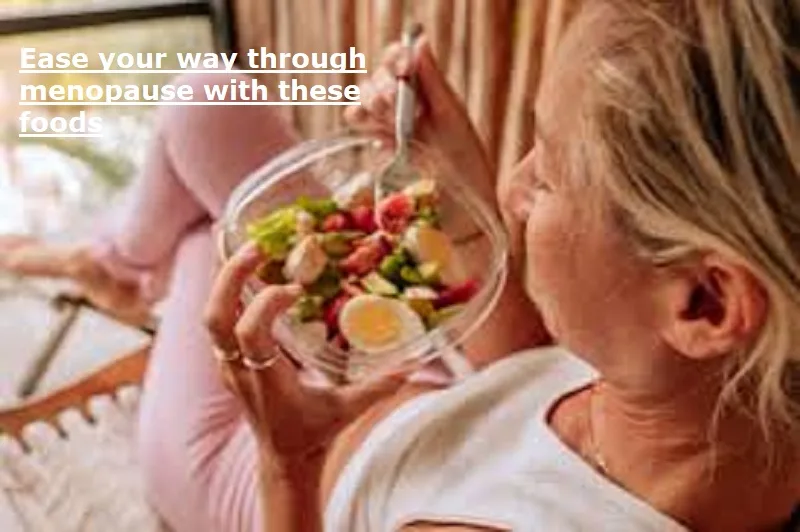
Menstrual cycles are an integral part of every women’s life. Menopause is the stage when a women completes 12 months of no cycles from their last period. During this transition, the production of estrogen declines. This impacts health and bone density. Including some foods may ease this transition.
Diet rich in Protein – Regularly eating protein throughout the day can help prevent the loss of lean muscle mass that occurs with age. So, women going through menopause should eat more protein, about 1.2g/kg ideal body weight (60-75grams protein) and for each meal add up 20–25 grams of high-quality protein. Foods rich in protein include meat, fish, eggs, legumes, nuts and dairy.
Consumes omega-3 fatty acids –Research shows that omega-3s can decrease the frequency of hot flashes and the intensity of night sweats. Foods rich in omega-3 fatty acids include fatty fish (mackerel, salmon and anchovies, and seeds like flax seeds, chia seeds and sabja seeds.
Also Read: Know what is raw food diet
Eat diet rich in Calcium, Vitamin D, magnesium and Vitamin K – Hormonal changes during menopause can cause bones to weaken, increasing the risk of osteoporosis. So, increase your consumption of dairy products (yogurt, cheese, and milk), lentils, pseudocereals (amaranth), nuts and seeds.
Add foods containing plant estrogens -Phytoestrogens are naturally occurring plant compounds that can mimic the effects of estrogen in the body. Therefore, they may help balance hormones. Foods rich in phytoestrogens include soybeans and soy products, tofu, tempeh, flaxseeds, chickpeas, and peanuts.
Wholegrain Diet: It helps prevent risk of other chronic diseases like heart problems, cancer etc. Brown rice, barley, quinoa.
Fruits and Vegetables: Fruits like berries, apples and cruciferous vegetables are rich in antioxidants, and other essential vitamins and minerals.

Post Your Comments